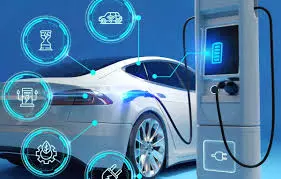
New Delhi: India needs Rs 16,000 crore in capital expenditure to meet the country’s growing public charging demand for electric vehicles (EVs) and achieve a target of over 30 per cent electrification by 2030, a report released on Monday said. FICCI’s report on “Electric Vehicle Public Charging Infrastructure: 2030 Roadmap” states that the current financial viability of public charging stations in India is low with a utilization rate of less than 2 percent and we should aim to achieve profitability and scalability. For 8-10 percent utilization by 2030.
“For example, the current cost structure of electricity tariffs with low consumption and fixed charges regardless of energy consumption at public charging stations has made it challenging to achieve break even. States like UP, Delhi and Gujarat have no/low fixed charges but there are other states with fixed tariffs. are high, thereby challenging viability,” FICCI said.
The report calls for action by key stakeholders including policy makers, industry players and government agencies to enable India’s transition towards clean energy and sustainability.
It also identifies five key challenges that need to be addressed to scale public charging infrastructure. These include limited financial viability; DISCOM or power related issues; Land related issues; operational challenges; and standardization and interoperability.
The report suggested standardization of GST rates for EV charging services from 18 percent to 5 percent in line with taxation across the EV value chain. It also called for a shift from a two-part tariff to a single-part tariff with consistent pricing across states.
The report also recommends that states promote the adoption of electric three-wheelers (E3W), such as not requiring a permit for purchasing an E3W; In the interim, use of the same permit for shifting from CNG three-wheelers to E3W.
It suggested setting up of a state-level cell with representation from industry stakeholders, and state and central authorities to charge and monitor infrastructure roadmap implementation.
Another important recommendation of the report sought the Power Ministry’s guidelines to have a mandate to ensure timely installation of public charging stations (PCS) by state discoms (distribution companies) for installation and operation of EV charging infrastructure.
The report identified the top 40 out of more than 700 cities analyzed based on EV sales from 2015 to 2023-24 and suggested prioritizing 20 highway extensions to increase public charging infrastructure.
These top 40 cities are expected to have high EV penetration in the next 3-5 years, given the current EV adoption rate, and favorable state policies. Moreover, 20 highways connecting these 40 priority cities contribute to 50 percent of the vehicular traffic.